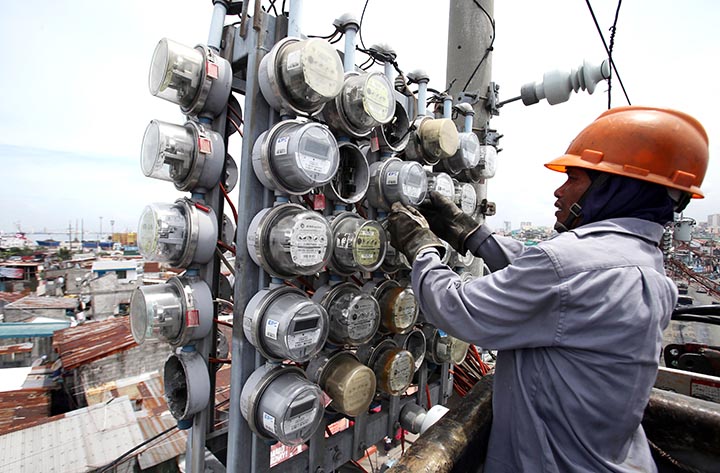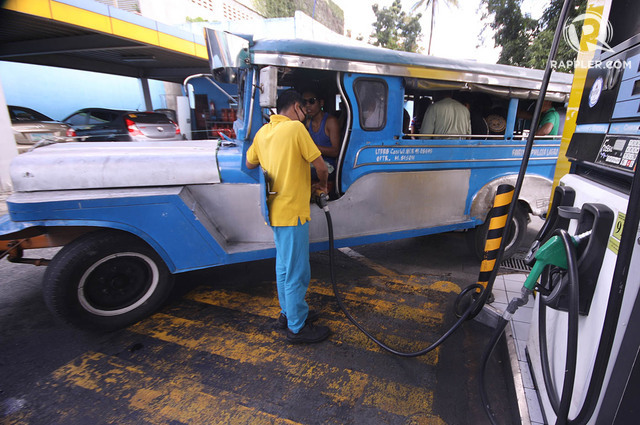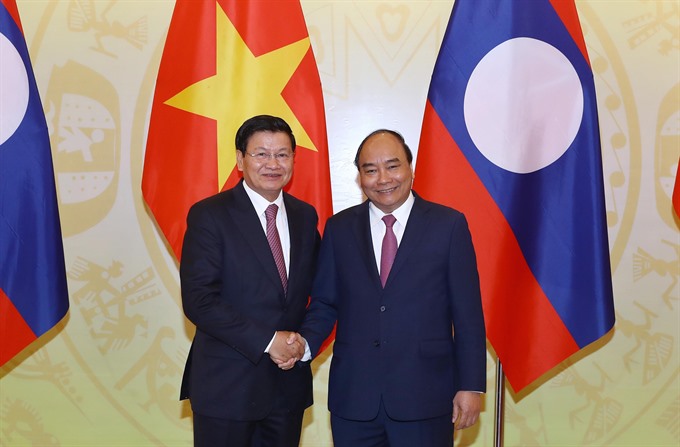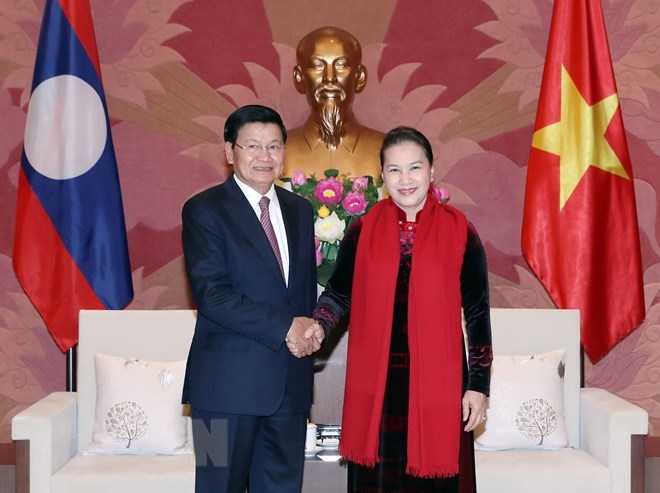HÀ NỘI — Vietnamese Prime Minister Nguyễn Xuân Phúc and his Lao counterpart Thongloun Sisoulith co-chaired the 41st session of the Việt Nam-Laos Inter-Governmental Committee in Hà Nội on Sunday.
PM Phúc expressed his delight at the positive development of traditional friendship, special solidarity and comprehensive co-operation between Việt Nam and Laos in diverse areas over the recent past.
PM Sisoulith believed the meeting will create a new driving force for the practical and effective development of bilateral ties.
Both sides were satisfied with the outcomes of co-operation between the two governments in 2018, especially in politics, external affairs, national defence-security, social safety and order.
More than 400 projects worth about US$4.1 billion by Vietnamese firms contributed to Laos’ socio-economic development. Two-way trade between the two nations exceeded the $1 billion benchmark in 2018, up 14 per cent year-on-year.
Several strategic transportation connectivity projects are underway while the number of Vietnamese scholarships to Lao students keeps increasing, helping to raise the total number of Lao students in Việt Nam to more than 14,200 so far.
Both sides reached consensus on co-operation orientations for 2019, which lays the focus on collaboration across the fields of politics, foreign affairs, defence, and security.
Regarding economic ties, the two countries will exchange experiences in building policies to stabilise the macro-economy and promote sustainable development. Also, they will work together to create business conditions for companies in each nation to reach 10 per cent growth in two-way trade this year.
Meanwhile, improving the quality of education-training cooperation will be prioritised, of which historical works highlighting the special relations between the two countries will be added to curriculums at both Vietnamese and Lao schools.
In addition, competent ministries, sectors and localities will foster the practical and effective co-operation in culture, science, society, communications, sport, healthcare, and legislation, among others.
In the spirit of special trust, the two sides agreed to continue close coordination and mutual support at regional and international forums. The two countries will accompany each other to deepen the cooperative progress of the ASEAN Community, and enhance the ASEAN’s role in strategic issues of the region, including the East Sea matter.
Furthermore, they were unanimous on co-operation in effectively and sustainably using water resources in the Mekong River.
Laos also backed Việt Nam’s candidacy for a non-permanent seat in the United Nations Security Council in the 2020-21 tenure.
PM Phúc stressed that right after the session, the Vietnamese Government will direct relevant ministries, sectors, localities, enterprises and units to closely collaborate with their Lao counterparts to immediately and effectively implement the just-made decisions.
Following the session, the two PMs witnessed the signing and exchange of six documents, including an agreement on the cooperation plan between the two governments in 2019, the minutes of the session, an agreement on the Vietnamese Government’s provision of 300 tonnes of rice seeds to the Lao Government, an agreement on the educational co-operation plan for 2019, the minutes on the transfer of the radio-TV station in Laos’ province of Savanakhet, and the minutes on the transfer of the Vietnamese-language faculty project at the Suphanouvong University and the Champasak University.
Bilateral meetings
On the same day, General Secretary of the Communist Party of Việt Nam (CPV) Central Committee and President Nguyễn Phú Trọng hosted a reception for Lao Prime Minister Thongloun Sisoulith.
Trọng congratulated Laos on its important domestic and foreign achievements over the past three years of implementing the Resolution of its 10th National Party Congress and expressed his delight at the deepening Việt Nam-Laos relations.
The Vietnamese leader highly valued the outcomes of the 41st session of the Việt Nam-Laos Inter-governmental Committee, describing it as a very important basis for the two countries to successfully implement the agreement on the cooperation plan between the two governments in 2019, as well as the Việt Nam-Laos co-operation agreement for the 2016-20 period.
He asked the two governments to work together in directing their ministries, sectors, localities and firms to implement the agreements reached at the session, focusing on the exchange of information and experiences in Party building, socio-economic development, close collaboration in national defence-security and foreign affairs, and seek ways to untangle the knots so as to improve the effectiveness of the cooperation in economy, investment, trade, culture, education, and science and technology.
Sisoulith expressed his belief that under the leadership of the CPV led by the General Secretary, the Vietnamese people will reap greater achievements in the renewal process and successfully realise the Resolution adopted by the 12th National Party Congress of the CPV.
During the meeting with the Laos PM, National Assembly (NA) Chairwoman Nguyễn Thị Kim Ngân said the Vietnamese NA will closely co-operate with the Lao parliament in continuing to create favourable conditions for the two governments to effectively implement their bilateral agreements.
Ngân further said she hopes the implementation of the key projects between the two countries on energy and transport will be accelerated. Especially, the quality and tempo of the construction of the Lao NA office should be ensured.
Host and guest also shared important experiences in law-building work and the holding of the confidence votes on officials elected or approved by the National Assemblies. — VNS
Read more at http://vietnamnews.vn/politics-laws/483296/vietnamese-lao-pms-co-chair-meeting-of-inter-government-committee.html#qzlW4OJfUeB4fmec.99








